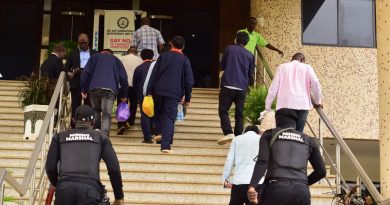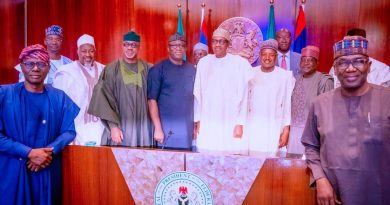Combating SGBV: FG, UN agencies, Stakeholders Advised To Step Up Funding
By Bukar Bolori
The Federal Government, United Nations and all relevant stakeholders have been advised to step up fundings and investment in the ongoing battle against Sexual and Gender Based Violence (SGBV) in order to consign the malady to history.
A Non-Governmental Organisation, Women Aspire Empowerment Initiative (WAEI) gave this advice at the weekend in Abuja as part of it’s activities to commemorate the 2023, 16 days activism.
Making the appeal at a summit set to establishing grassroot women advocacy and activism movement to stop Violence Against Women and Girls in the Federal Capital Territory (FCT), the Founder WAEI, Dr. Bibiana Okereafor stressed the need to address the socio-economic demands of survivors of SGBV, by empowering women and girls to reduce the inequality that exists in the society, and also continue to advocate for the reduction of gender based violence through the implementation of laws and policies to stop Violence Against Women and Girls (VAWGs).
Okereafor said: “Practical evidence shows that strong and independent women movements are the most important force to drive policy change in GBV. Unfortunately, such women entities and movements that are key drivers of mobilization/recruitment are not being funded.
“Increasing funding sources that are long term in nature to finance Women-focused rights organisations is key to funding solutions and response to VAWGs in Nigeria.”
She added that: “We are calling on the federal government through the office of the Women Affairs Minister, Barrister Uju Kennedy to push for the inclusion of Funding Organisations that are involved in the fight to prevent VAWG, as well as the rehabilitation of existing victims/survivors and reduce incidents of future violence.
“We also call on Federal Government organizations, states, international bodies, UN Women & Corporate organizations, high net-worth individuals within and outside Nigeria to give financial support to stop continued VAWG in Nigeria.”
Okereafor further questioned the intentionality of government about ending VAWG, noting that the poor distribution of amount allocated to the nation through international funding as well as the distribution of generated funds among organisation’s working to stop Violence Against Women and Girls.
She also called for the speedy legislation of the 5 Gender Based Bills thrown out by the 9th Assembly, and the creation of a one stop centre for the victims of sexual assault, domestic violence, medical, psychosocial and counselling for female survivors of Sexual Assault.
Delivering his keynote Address, Commissioner of the National Commission for Refugees, Migrants and Internally Displaced Persons (NCFRMI) Tijani Ahmed noted that violence against women and girls is a pressing global issue that requires collective attention and action, lamenting that human lost due to violence against women and girls is incalculable and an unfortunate reality that continues to persist.
He, however, commended the call for establishment of a grassroots women’s advocacy and activism movement stating that “it is an essential step. Such a movement aims to empower women and girls, provide them with a platform to raise their voices and promote gender equality in all aspects of life. By mobilizing at the grassroots level, we can ensure that the voices of marginalized women and girls and their specific needs are addressed.
Ahmed, who was represented by an Assistant Director in the Commission, Comfort Sanni said: “To establish a successful grassroots movement, we need to focus on key areas, awareness and education: This movement should start by raising awareness about violence against women and girls.
“We need to educate communities, both rural and urban, about the various forms of violence and their detrimental effects on individuals and society as a whole. By dispelling and challenging stereotypes, we can change attitudes and foster a culture of respect and gender equality.
“In the FCT, we must take a firm stand against such acts of violence and work towards creating a safer and more inclusive society for everyone. This is the bane of this year’s commemoration,” he said.
Also, Women and Children’s rights activist and Public Analyst, Nana Kazaure reiterated that violence meted to women have grave consequences on their well being, stating that it is a greater cause of ill health than traffic accidents and malaria combined.
Kazaure also stated that “as troubling as these incidents are, they do not evoke in Nigerians, the needed empathy to prompt them to action. Instead, a pervasive culture of silence pervades the land as everyone stuck in our traditional “siddon look” or “waka pass mode re-in forced by our see no evil, hear no evil mindset.
“Traditional attitudes of hostility and discrimination against women underpinned by mindless stereotyping, have been exacerbated by violence perpetrated by corporate non-state actors and individuals across all the geopolitical zones of the country with hundreds of thousands of women and their children uprooted from their homes and handed off to Internally Displaced Persons camps where the majority of them become victims of rape of camp officials in order to obtain favour.”




